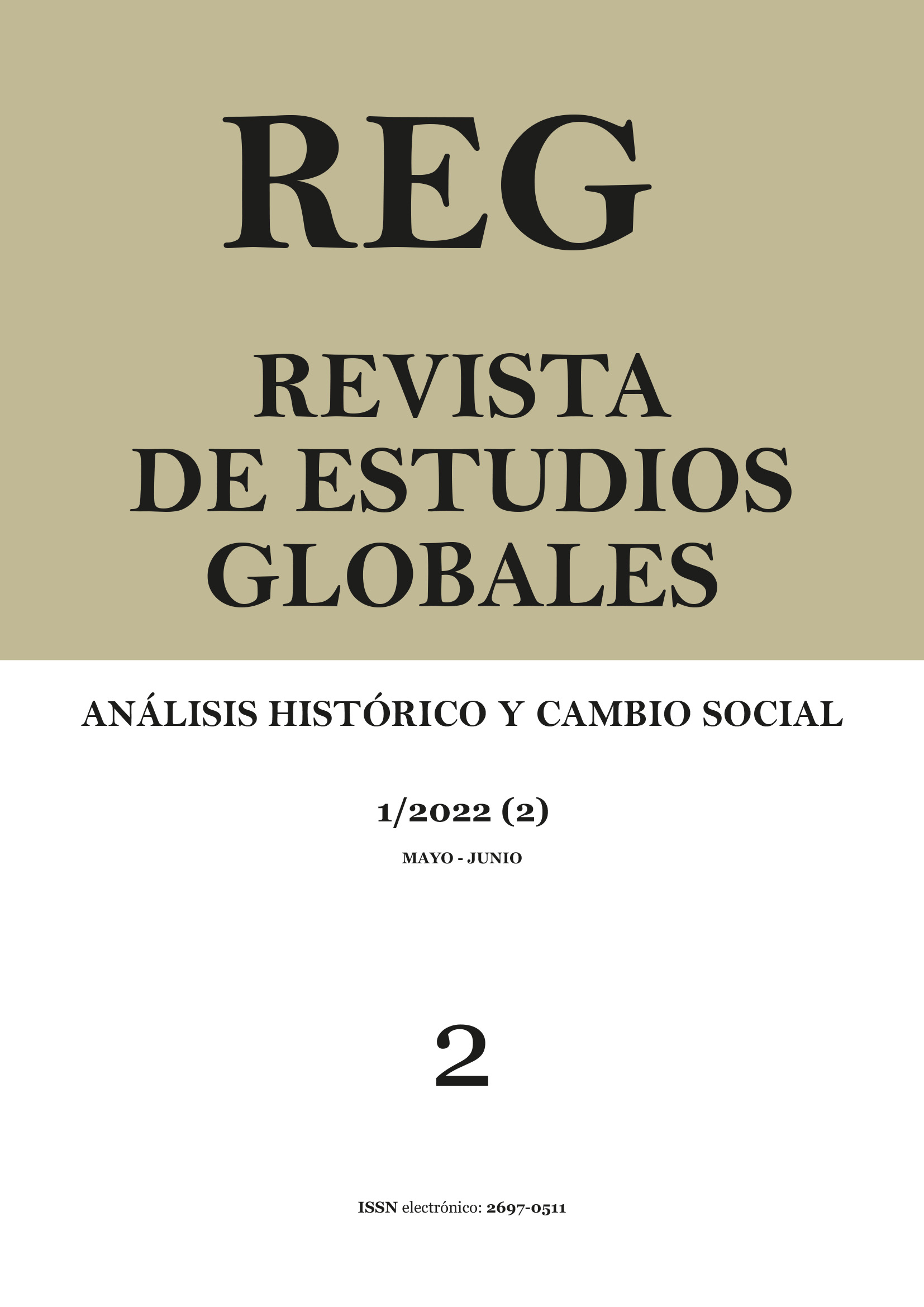Intercambio desigual en la era de los monopolios generalizados
Abstract
The objective of this article is to analyze the emergence of a new international division of labor in the era of monopolies. In a first stage, this process involves low-skilled labor associated with the dismantling of the productive apparatus in the countries of the periphery and its rearticulation with the great imperialist powers through the mecha-nism of global value chains. In a second phase, there is a restructuring of the highly qual-ified workforce related to knowledge-intensive activities and innovation systems, with Silicon Valley at the forefront. This new international division of labor reconfigures the relations of power and dependency between the global North and South, or center-pe-riphery, producing as a consequence new and extreme modalities of unequal exchange within and between different countries and macro-regions of the world capitalist system.
Downloads
Metrics
-
Abstract803
-
pdf (Español (España))382
References
Amin, S. (2013), The Implosion of Contemporary Capitalism, New York: Monthly Review Press.
Amin, S. (1974), Accumulation on a World Scale: A Critique of the Theory of Underdevelopment, New York: Monthly Review Press.
Arizmendi, L. (2020), «La crisis epidemiológica global en el marco de la crisis epocal del capitalismo», Migración y Desarrollo, 18 (34), pp. 7-32.
Astarita, R. (2006), Valor, mercado mundial y globalización, Buenos Aires: Kaicron.
Bruche, G. (2009), «The Emergence of China and India as New Competitors in MNCs. Innovation Networks», Competition and Change, 13 (3), pp. 199-213.
Chesbrough, H. (2008), «Open innovation: A new paradigm for understanding in-dustrial innovation», en H. Chesbrough, W. Vanhaverbeke y J. West (Eds.), Open innovation: Researching a new paradigm (pp. 1-14). Oxford: Oxford University Press.
Cypher, J. y Delgado Wise, R. (2012), México a la deriva. Génesis, desempeño y crisis del Modelo Exportador de Fuerza de Trabajo. México: Miguel Ángel Porrúa.
Delgado Wise, R. (2015), «Unraveling Mexican Highly-Skilled Migration in the Context of Neoliberal Globalization», en S. Castles, M. Arias Cubas, y D. Ozkul (eds.) Social Transformation and Migration: National and Local Experiences in South Korea, Turkey, México and Australia (pp.201-218). Basingstoke: Palgrave MacMillan.
Delgado Wise, R. y D. Martin (2015), «The political economy of global labor arbi-trage», en Kees van der Pijl (ed.). The International Political Economy of Production (pp. 59-75). Cheltenham: Edward Elgar.
Delgado Wise, R., y Chávez, M. (2016), «¡Patentad, patentad!: apuntes sobre la apropiación del trabajo científico por las grandes corporaciones multinacionales», Observatorio del Desarrollo, 4 (15), pp. 22-30.
Delgado Wise, R. y S. Gaspar (2018), «Claves para descifrar la arquitectura de la globalización neoliberal: exportación de fuerza trabajo e intercambio desigual», en J.L. Calva (ed.), La Globalización Neoliberal en Crisis (pp. 159-186). México. Juan Pablos Editor, Consejo Nacional de Universitarios y Universidad de Guadalajara.
Dussel, E. (2019), La producción teórica de Marx: Un comentario a los Grundrisse. México: Siglo XXI.
Echeverría, B. (2011), Antología: Crítica de la Modernidad Capitalista, La Paz, Bolivia: Vicepresidencia del Estado Plurinacional de Bolivia/ Oxfam.
Emmanuel, A. (1972), Unequal Exchange: A Study of the Imperialism of Trade, New York and London: Monthly Review Press.
Ewalt David M. (2018), «Reuters Top 100: The World’s Most Innovative Universi-ties 2018». Disponible en https://www.reuters.com/article/us-amers-reuters-ranking- innovative-univ/reuters-top-100-the-worlds-most-innovative-universities-2018- idUSKCN1ML0AZ
Finger, B. (2020), «Unequal Exchange: Key Issues for the Labor Theory of Value», Journal of Socialist Theory, 48 (2-3), pp. 169- 187.
Foladori, G. (2017), «Teoría del valor y ciencia en el capitalismo contemporáneo», Observatoriodel Desarrollo, 6(18), pp. 42-47
Foster, J. B., McChesney, R.W. y Jonna, J. (2011a), «The Internationalization of Monopoly Capital», Monthly Review, 63 (2), pp. 3-18.
Foster, J. B., McChesney, R.W. y Jonna, J. (2011b), «The Global Reserve Army of La-bour and the New Imperialism», Monthly Review, 63 (6), pp. 1-15.
Galama, T. y James, J. (2008), US Competitiveness in Science and Technology. Santa Mónica: RAND Corporation.
Gutiérrez Escobar, L., y Fitting, E. (2016), «Red de Semillas Libres: Crítica a la Biohegemonía en Colombia», Estudios Críticos del Desarrollo, 7 (11), pp. 85-106.
Katz, C. (2018), La teoría de la dependencia, cincuenta años después, Buenos Aires: Batalla de Ideas.
Lapegna, P., y Otero, G. (2016), «Cultivos Transgénicos en América Latina: Ex-propiación, Valor Negativo y Estado», Estudios Críticos del Desarrollo, 6 (11), pp. 19-44.
Marini, R. M. (1974), Dialéctica de la dependencia, México: Era.
Márquez, H. y R. Delgado Wise (2012), Desarrollo desigual y migración forzada: Una mirada desde el Sur Global, México: Miguel Ángel Porrúa.
Marx, K. (1975), El capital. Tomo I, vol. III, México: Siglo XXI editores.
Messitte, P. (2012), «Desarrollo del Derecho de Patentes Estadounidense en el Siglo XXI. Implicaciones para la Industria Farmacéutica», en A. Oropeza and V. M. Guízar López (Eds.), Los Retos de la Industria Farmacéutica en el Siglo XXI. Una Visión Comparada Sobre su Régimen de Propiedad Intelectual (pp. 179–200). México: UNAM–Cofep.
Míguez, P. (2013), «Del General Intellect a las tesis del Capitalismo Cognitivo: aportes para el estudio del capitalismo del siglo XXI», Bajo el Volcán, 13 (21), pp. 27-59.
Motta, R. (2016), «Capitalismo global y Estado Nacional en las Luchas de los Cultivos Transgénicos en Brasil», Estudios Críticos del Desarrollo, 6 (11), pp. 65–84.
Murgich, V. (2015). «Las startup más exitosas (y famosas) del mundo», Merca2.0, Disponible en https://www.merca20.com/las-startup-mas-exitosas-y-famosas-del-mundo
Saxenian, A. L. (2006), The new argonauts: Regional advantage in a global economy, Boston, MA: Harvard University Press.
Ricci, A. (2019). «Unequal Exchange in the Age of Globalization», Review of Radical Political Economics, 51(2), pp. 225- 245
Rosdolsky, R. (1977), The Making of Marx’s Capital, London: Pluto Press.
Sturgeon, T. (2003), «What Really Goes on in Silicon Valley?, Spatial Clustering and Dispersal in Modular Production Networks», Journal of Economic Geography, 3 (2), pp. 199-225.
Thomson Reuters (2018), «The top 100 Global Technology Leaders». Disponible en https://www. thomsonreuters.com/en/products-services/technology/top-100.html
UNCTAD (2010), World Investment Report 2010, Nueva York: United Nations.
UNCTAD (2020), «Special Economic Zones and Urbanization». Disponible en https://unhabitat.org/special-economic-zones-sezs-and-urbanization.

Copyright (c) 2022 Revista de Estudios Globales. Análisis Histórico y Cambio Social

This work is licensed under a Creative Commons Attribution-NonCommercial-NoDerivatives 4.0 International License.









